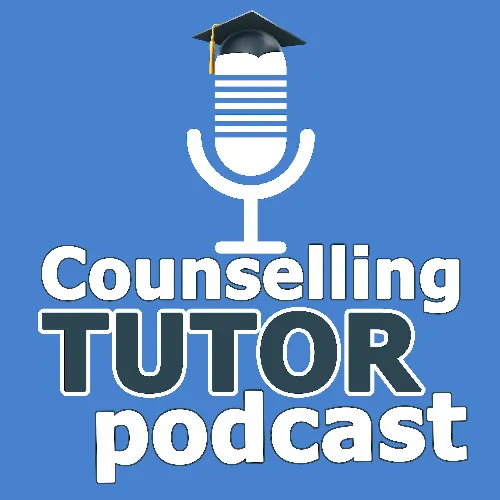137 – Counselling Suicidal Clients
- Author
- Ken Kelly and Rory Lees-Oakes
- Published
- Sat 18 Jan 2020
- Episode Link
- https://counsellingtutor.com/counselling-suicidal-clients/
Taking a Year out of Your Course - Dealing with Disagreements with Colleagues
In episode 137 of the Counselling Tutor Podcast, Ken Kelly and Rory Lees-Oakes talk about counselling suicidal clients, or clients who express suicidal thoughts. 'Check-In with CPCAB' then looks at what to do if you need to take a year out of your course. Finally, in 'Practice Matters', the presenters discuss dealing with disagreements with colleagues.
* BACPAC practice management software for counsellors and psychotherapists is a sponsor of the Counselling Tutor Podcast.
Get a 30-day free trial of BACPAC and a 30% discount by using the discount code CT2020
Counselling Suicidal Clients (starts at 1.45 mins)
Rory opens this first segment, which focuses on counselling suicidal clients, by talking about the importance of language relating to suicide.
The term 'committing' suicide dates back to a time when suicide was against the law; as this is no longer so, it should not now be used.
Also, the term suicidal 'ideation' (thinking) sounds very clinical and is not therefore a good fit in the context of counselling.
Ken and Rory offer a number of tips on counselling suicidal clients, or working with clients who express suicidal thoughts:
Don't panic: if the client is communicating about this, there is hope.
Try to calmly explore the meaning of what they are saying together.
In particular, consider how advanced this thinking is - e.g. has the client made a plan of how they would take their own life, and is there clear intent to actually do so?
Look for other warning signs (e.g. giving away possessions, not making future plans etc.).
Consider whether the client has any risk factors or behaviours, e.g. alcohol use or previous suicide attempts.
Ensure you understand your agency's policy and procedures on dealing with suicidal clients, including who at the agency to involve if the client seems to have serious intent to take their own life.
Remember that the contract will have spelt out how the agency responds to disclosures of suicidal intent, including onward referral if need be.
Record all your actions in your notes in a factual way, as evidence that you have followed policy and acted professionally.
Make sure you're well-educated on counselling suicidal clients - for example, you might like to look at the lecture by Dr Eoin Galavan in the Counselling Study Resource (CSR).
In short, remember Rory's maxim: hope for the best but prepare for the worst.
Check-In with CPCAB: Taking a Year out of Your Course (starts at 16.40 mins)
Rory talks to Heather Price (Senior Counselling Professional) about what to do if you need to take a year out in the middle of your level 4 diploma (or other qualification) course - for example if you have experienced a bereavement, relationship split or job loss.
She offers tips on what to do if you are considering this; most importantly, talk to your tutor as soon as possible.
For more information about CPCAB, please see its website. CPCAB is the UK's only awarding body run by counsellors for counsellors.
Dealing with Disagreements with Colleagues (starts at 29.30 mins)
